News
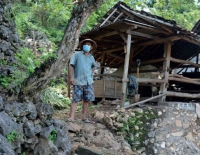
18/09/2020
Food safety is part of the response and recovery programme that FAO is planning to help countries stop the COVID-19 pandemic from disrupting food systems on which food security, health and livelihoods of many depend. FAO is calling on partners around the world – Members, the private sector, civil society, academia and cooperatives – to join forces to ensure safe and nutritious food for all during and after the pandemic. “Together, we can help protect the world’s most vulnerable, prevent further crises, increase resilience to shocks, and accelerate the rebuilding and sustainable transformation of our food systems,” the programme brochure states.
The...

21/08/2020
The International Food Safety Authorities Network, often referred to as INFOSAN, now has a new reference document for its members to better understand their roles and responsibilities. When a food safety incident related to international food trade occurs, quick action by different sectors is needed to mitigate risk for consumers, the publication explains. By setting forth what the various agencies need to do, this publication will allow for more effective collaboration in emergency response.
The 38-page publication, called INFOSAN Members’ Guide, starts off with a general overview of the INFOSAN structure – how it works, the way it is organized and managed – and then goes on to define the roles and responsibilities of members, the INFOSAN Secretariat and the Advisory Group. It illustrates the ideal national-level set-up...
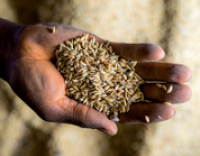
14/08/2020
Despite longstanding efforts towards international harmonization of allowable thresholds for pesticide residues in foods, differences in national implementation of maximum residue limits (MRLs) continue to exist, raising questions with regard to their impact on trade. To shed light on this complex issue, FAO conducted an analysis, using rice as a case study. The publication, Understanding international harmonization of pesticide maximum residue limits with Codex standards, was released on 12 August 2020.
The findings of the study are organized in two parts:
Part A
The first part looked at the international harmonization of pesticide MRLs and its effects on trade, reporting that many...
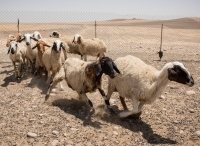
30/07/2020
There is yet no evidence that livestock or poultry can become infected with SARS-CoV-2, the virus that causes COVID-19. Thus, the transmission of SARS-CoV-2 from sheep or other livestock to humans is not expected. Likewise, food has not been reported route of transmission of the disease. Nevertheless, care should be taken to follow appropriate slaughter, processing, storage and food preparation practices to ensure food safety and quality, animal welfare and worker safety.
Notably, the use of facial covering and physical distancing among individuals during the slaughter or sacrifice of sheep, and during the steps preparing them to be consumed, will reduce...
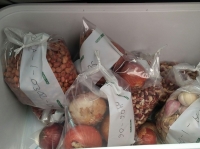
16/07/2020
When tested for 800 chemical residues and contaminants, as part of an FAO study, in most cases, the exposure from food consumed in Benin, Cameroon, Mali and Nigeria did not exceed levels of toxicological concern. However, the study also revealed that several mycotoxins, lead, aluminium, polycyclic aromatic hydrocarbons and a pesticide could be a cause of concern for households in some areas of each of the four African countries.
The findings of this large-scale total diet study, conducted by FAO with technical support of the World Health Organization and Centre Pasteur of Cameroon, are detailed extensively in an article published by The...

06/07/2020
FAO, WHO and the Codex Alimentarius Secretariat jointly facilitated the second observance of World Food Safety Day, which took place on 7 June 2020. To find out what that was like from an FAO perspective, we spoke with Markus Lipp (ML), Head of the FAO Food Safety and Quality Unit, who helped shape the campaign and took part in a number of events.
Q: What was this year’s World Food Safety Day like for you?
ML: World Food Safety Day 2020 was a wonderful experience. We learned from an amazingly large and varied group of activities from all stakeholders. Personally, I participated...
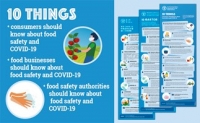
26/06/2020
In March 2020, the Global Food Security Cluster (gFSC) convened an ad-hoc COVID-19 technical working group to coordinate the efforts of gFSC partners in their preparedness and humanitarian response to mitigate the impact of the COVID-19 pandemic on the food security of vulnerable and affected populations. The FAO Food Safety and Quality Unit was called upon to support the development of operational guidance related to food hygiene and food handling targeting vulnerable households and communities affected by the pandemic.
FAO Food Safety and Quality Officer Christine Kopko is among the many FAO experts collaborating with the gFSC, which is co-led by...
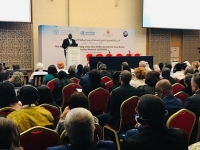
19/06/2020
Through various interactive discussion sessions, the Second Global Meeting of Joint FAO/WHO International Food Safety Authority Network (INFOSAN) strengthened the sense of community among the 300 participants from 135 countries on 9-11 December 2019, as described in the newly released report. Held in Abu Dhabi, United Arab Emirates, the meeting was hosted by the Abu Dhabi Agriculture and Food Safety Authority (ADAFSA) and co-organized by the Food and Agriculture Organization of the United Nations (FAO) and the World Health Organization (WHO).
The report outlines the various sessions of the meeting, which was about bringing together INFOSAN members to discuss recent developments...
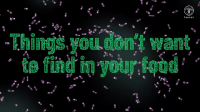
17/06/2020
On 12 June 2020, the Joint FAO/WHO Expert Meetings on Microbiological Risk Assessment (JEMRA) paid a short tribute to World Food Safety Day with a video screening. The video was of particular significance because several of the meeting participants had been involved in the recording.
Experts, resource persons and members of the FAO and WHO Secretariats participating in the meeting on Shiga toxin-producing E. coli (STEC), currently underway until 30 June, appeared in the video to explain a bit about the role of scientists in food safety. This message tied in with the overall 2020 theme for the UN day: Food safety, everyone’s business.
JEMRA...
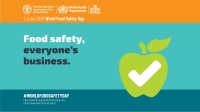
08/06/2020
This year World Food Safety Day celebrations started early – with INFOSAN members gathering for webinars on ‘safe food in markets’ in mid-May – and will run until at least mid-June when the Republic of Korea holds its 19th national celebration of food safety. With limitations on gatherings and travel in many countries due to the COVID-19 pandemic, many of the events that were to be held in person have been moved online. The event that WHO was to host with FAO in Geneva is an example.
In a live session on Facebook on Friday 5 June,...
Stay up to date and connect to our RSS feed!
